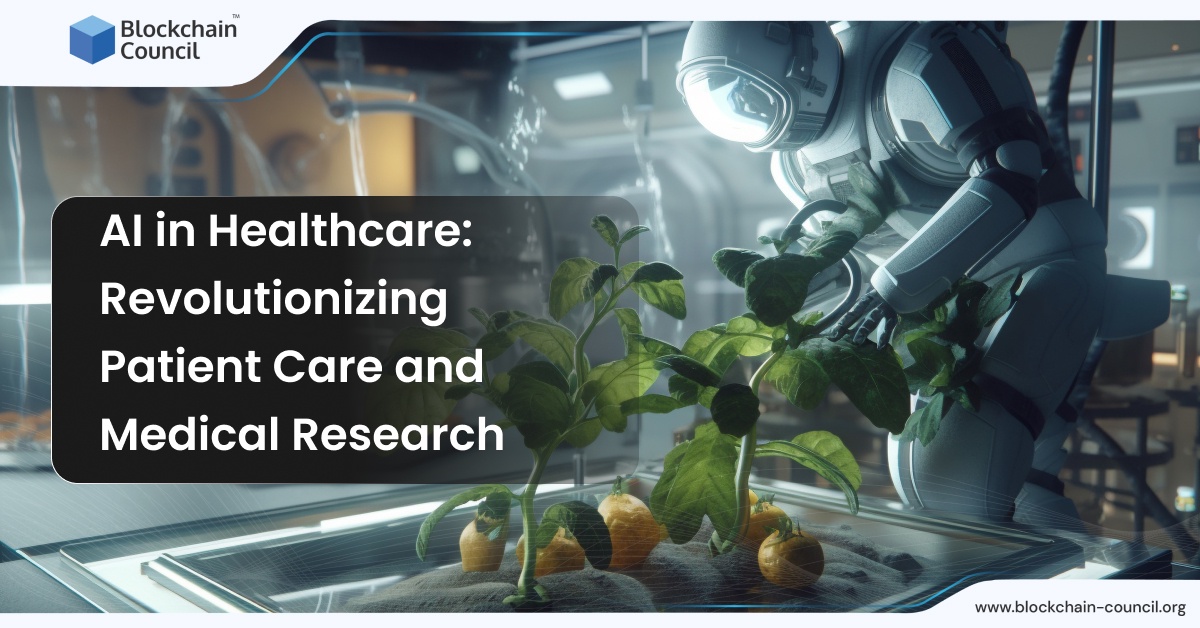In recent years, Artificial Intelligence (AI) has emerged as a transformative force in the field of healthcare, reshaping patient care and driving unprecedented advancements in medical research. This article delves into the multifaceted ways in which AI is making significant strides in the healthcare sector, providing an in-depth analysis of its technical aspects and profound implications.
The integration of AI into healthcare systems represents a revolutionary shift in how medical services are delivered and managed. Unlike traditional approaches, AI in healthcare is not merely an augmentation but a complete overhaul, aiming to enhance efficiency, accuracy, and overall effectiveness in patient care and medical research.
AI in Diagnostics
One of the most groundbreaking applications of AI in healthcare lies in diagnostics, particularly in medical imaging. AI algorithms, fueled by the power of deep learning, exhibit an exceptional ability to analyze intricate images such as MRIs and CT scans. The level of precision achieved by these algorithms often surpasses human capabilities, leading to earlier and more accurate detection of diseases. This breakthrough translates into prompt interventions and improved prognosis for patients.
Predictive Analytics
The predictive power of Artificial Intelligence (AI) is harnessed through the analysis of vast datasets, encompassing electronic health records, genetic information, and other relevant data. Machine learning algorithms can sift through this wealth of information to predict disease trajectories. This capability not only facilitates early intervention but also enables the development of personalized treatment plans. The advent of predictive analytics marks a paradigm shift toward proactive healthcare, where potential issues are addressed before they manifest clinically.
Virtual Health Assistants
AI-powered virtual health assistants are becoming integral in enhancing patient engagement. These digital entities, driven by natural language processing and machine learning algorithms, provide real-time information, answer patient queries, and offer support. By fostering continuous communication, virtual health assistants contribute to a more patient-centric approach, improving patient understanding and adherence to treatment plans.
Drug Discovery and Development
In the realm of medical research, AI is a game-changer in drug discovery and development. The traditional drug discovery process is notorious for its time-consuming and expensive nature. AI algorithms, however, can analyze vast biological datasets swiftly, accelerating the identification of potential drug candidates and significantly shortening the development timeline. The ability of AI to decipher complex biological interactions is unlocking new avenues for therapeutic innovation, aligning with the principles of prompt engineer courses.
Natural Language Processing (NLP) in Healthcare
Natural Language Processing (NLP) is a pivotal aspect of AI, particularly in managing the vast amount of unstructured data in healthcare. NLP algorithms can extract valuable information from clinical notes, research papers, and other textual sources. This facilitates efficient data mining, making it easier for healthcare professionals to access and utilize pertinent information, a skill emphasized in AI prompt engineer certification.
Precision Medicine
The concept of precision medicine is intricately tied to AI's ability to analyze individual genetic and molecular profiles. By scrutinizing this wealth of data, AI can tailor treatment plans to the unique characteristics of each patient, a practice aligned with the principles taught in AI expert certification. This ensures not only more effective treatments but also minimizes adverse effects.
Robotics in Surgery
Surgical procedures have undergone a transformation with the integration of AI-guided robotic systems. These systems enhance surgical precision, minimize invasiveness, and contribute to faster patient recovery times. Surgeons can leverage AI assistance to navigate complex anatomies and perform intricate procedures with heightened accuracy. Robotics in surgery is not a replacement for skilled surgeons but a powerful tool that augments their capabilities, a concept reinforced in AI developer certification.
Challenges and Ethical Considerations
The integration of AI into healthcare is not without its challenges. Data privacy concerns loom large as vast amounts of sensitive health information are processed by AI systems. Interoperability issues between different healthcare systems pose obstacles to the seamless integration of AI technologies. Moreover, ethical considerations, such as the potential biases embedded in algorithms and the responsible use of patient data, demand careful attention, aspects covered in the curriculum of cybersecurity certification.
Future Prospects
Looking into the future, the prospects of AI in healthcare are both exciting and challenging. Ongoing research and development efforts are focused on addressing current limitations and unlocking new possibilities. As AI continues to evolve, we can anticipate even more sophisticated applications, further refining patient care and driving groundbreaking innovations in medical research.
- Enhanced Diagnostics and Early Intervention: Future AI systems are poised to offer even more advanced diagnostic capabilities, detecting subtle anomalies at earlier stages. This could lead to prompt interventions before symptoms manifest, significantly improving patient outcomes.
- Augmented Reality (AR) in Surgery: The integration of AI with augmented reality holds promise for surgical procedures. Surgeons could benefit from real-time, AI-driven guidance, enhancing precision and reducing the margin of error, a concept explored in the curriculum of prompt engineer courses.
- AI-Driven Public Health Initiatives: AI's predictive analytics capabilities could be harnessed for public health initiatives. Early identification of disease hotspots and proactive measures could mitigate the impact of epidemics and pandemics, aligning with the principles of AI certification.
- Collaborative AI in Research: AI's potential for collaboration among researchers globally is significant. Shared datasets and collaborative AI platforms could expedite research breakthroughs, fostering a more interconnected global healthcare community, a key theme in AI certification.
- Ethical AI Development: As AI in healthcare advances, there will be an increased focus on ethical considerations. Stricter guidelines and regulations will likely be implemented to ensure the responsible use of AI, protecting patient privacy and minimizing biases, an imperative aspect of AI expert certification.
Conclusion
In conclusion, the integration of AI into healthcare represents a transformative journey that is reshaping the very foundations of patient care and medical research. The benefits, though accompanied by challenges, promise a healthcare system that is not only more efficient and precise but also personalized and responsive to the needs of individual patients.
As the AI revolution in healthcare unfolds, its impact is poised to leave an indelible mark on the future of medicine, ushering in an era of unprecedented possibilities. Explore the diverse range of certifications, such as prompt engineer courses, AI expert certification, cybersecurity certification, and AI developer certification, to equip yourself for the dynamic landscape of AI in healthcare. Blockchain council certification is a valuable resource to enhance your expertise in this transformative field.


No comments yet